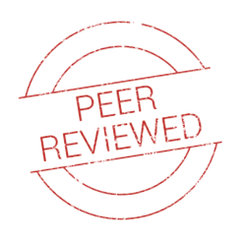Biotics
Experiences of sleep, stress and wellbeing during 10 weeks of probiotic supplementation – a real-world study in hybrid workers
Katy Sorensen1*
Mary B Curristin2, Kyla L Gracey1, Fiona J Kinnear1, Joe Kupusarevic2
*Corresponding author
1. Novozymes OneHealth, 2800 Kgs. Lyngby, Denmark
2. ART Health Solutions, Newcastle, United Kingdom

KEYWORDS
Bifidobacteria
Microbiome
Gut-brain axis
Sleep
Stress
Wellbeing
Abstract
Sleep and stress may be influenced by work patterns and the microbiota-gut-brain axis. Clinical trials in healthy adults found that Bifidobacterium longum 1714TM(B. longum 1714) reduced stress and improved aspects of sleep health. This real-world study evaluated sleep duration, sleep- and stress-related problems, and overall wellbeing, among 20 hybrid workers during 10 weeks of supplementation containing B. longum 1714. Sleep duration increased by 20 minutes/night during the working week. Difficulty falling asleep, difficulty staying asleep, and tiredness/fatigue improved from baseline among the majority of participants, with decreases in incidence and severity. Similar trends were observed with feelings of stress, anxiousness and being overwhelmed. Wellbeing improved among 80% of participants (baseline 6.5±0.9 vs. week 10 7.6±0.8). These findings suggest B. longum 1714 may be associated with benefits to sleep and stress among hybrid workers.
Introduction
Hybrid working combines working in a traditional workspace with remote working locations (1). Hybrid workers in the United Kingdom (UK) increased from 12% to 22% between 2019 and 2022. Benefits of working remotely include higher organisational commitment, job satisfaction and related wellbeing (2), however negative consequences have been identified. Difficulty falling and/or staying asleep were reported by almost half of home-office workers (3) and social isolation, family-work conflict, and digital anxiety they experience is associated with increased stress. (2, 4).
The annual cost of sleep loss to the UK economy is estimated at £40 billion, owing to lost productivity (5). Poor mental health may cost UK employers £33-42 billion per year (6), with stress-related illness accounting for £11 billion of National Health Service (NHS) expenditure (7). The increased risks of chronic diseases associated with long-term sleep deprivation (8) and stress (9) present additional indirect costs. Identifying approaches to promote healthy sleep and stress-related behaviours may help lessen the economic burden.
Sleep and stress responses are complex, interconnected physiological processes (10), regulated in part by the microbiota-gut-brain axis (11, 12). This bidirectional signalling construct between the gastrointestinal tract and the brain involves neural connections centred along the vagus nerve and the hypothalamic–pituitary–adrenal axis, hormonal and immunological pathways, and mediation by enteric microorganisms and their metabolites (13). Gut microbiota diversity has been found to correlate with sleep efficiency (14), with altered gut microbiota composition common in sleep disorders (11) and stress-related conditions (12). Modulation of the gut microbiota, through dietary modification and supplementation with prebiotics or probiotics, has improved sleep and stress-related behaviours in animal models (12, 15). In particular, the Bifidobacterium longum 1714TM(B. longum 1714) probiotic strain exerted positive effects on behaviours related to stress, anxiety, and depression in preclinical studies (16, 17). In healthy adults, this strain reduced daily perceived stress and cortisol output in response to stress, and attenuated anxiety following exposure to stress (18). B. longum 1714 has also been shown to improve aspects of sleep health (19, 20), decrease daytime dysfunction due to sleepiness (20), and alter brainwave activity in both the resting state and response to stress, which correlated with increased energy/vitality and changes in distress, respectively (21).
The aim of this real-world study was to explore whether similar benefits may be identified outside of a controlled trial environment, in a population of hybrid-working professionals who may be susceptible to problems related to sleep and stress.

Materials and methods
During July to September 2022, eligible individuals (aged ≥18 years, living in the UK, hybrid-working in full or part-time professional employment; and owners of a wearable biometric device (‘smart’ watch) with the functionality to measure sleep duration within a 24-hour period) were recruited via social media advertisement. Participants opted in by submitting an enrolment and informed consent form following written and verbal briefings. This study did not meet the criteria for research requiring ethical review by the Health Research Authority in the UK (22).
Once enrolled, participants received the probiotic supplement (Zenflore®, produced for PrecisionBiotics Group Ltd, Ireland) via post, to be taken once daily for 10 weeks. Each capsule contained 1x109 colony-forming units of B. longum 1714 and B vitamins (100% of the adult nutrient reference values (23) for thiamine, riboflavin, niacin, vitamin B6, folic acid, vitamin B12, biotin and pantothenic acid).
Sleep duration data was collected daily throughout baseline (1 week pre-supplementation) and the 10-week supplementation period, synchronised from the participants’ ‘smart’ watch (67% Fitbit®; 33% Garmin®). Participants completed online surveys at baseline, midpoint (week 5) and end (week 10) of the study. Likert scales were used to score the incidence (no days/some days/most days/every day) and severity (none/mild/moderate/severe/very severe) of sleep-related outcomes (tiredness/fatigue, difficulty falling asleep, difficulty staying asleep) and stress-related outcomes (feelings of stress, anxiousness, being overwhelmed). Overall wellbeing was measured with a 10-point Likert scale (1=worst, 10=best).
Statistical analysis was conducted per protocol including participants who reported taking the probiotic supplement every day (85%) or most days (15%) and provided data at each timepoint. Mean nightly sleep duration for the ‘working week’ (Monday to Friday) and the whole week (Monday to Sunday) were compared from the baseline period, weeks 1-5 (up to the midpoint) and weeks 6-10 (up to the end) of the study, using repeated measures analysis of variance and Bonferroni post hoc. Survey data were analysed with Friedman and Conover post hoc tests. Statistical significance was set at p<0.05.
Results
Participants
Of the 38 individuals enrolled (66% female, 34% male; 65% 18-34 years, 32% 35-54 years), 20 completed the programme and were included in the analysis (Table 1). At baseline, the majority reported experiencing at least one stress or sleep-related problem within the last week (Table 1).
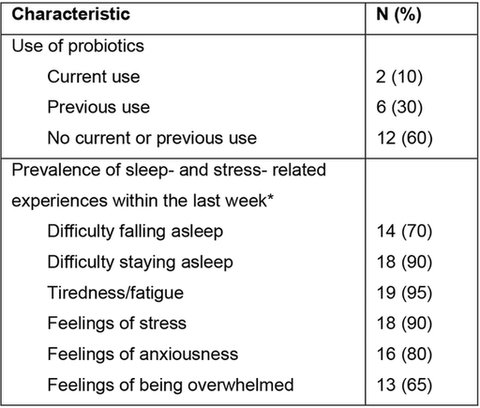
Table 1. Baseline characteristics (n=20).
*Responded every day/most days/some days to the question “In the last week, how often have you experienced each of the following?”
Sleep-Related Outcomes
Mean sleep duration improved in 92% of participants during the working week, increasing by 20 minutes/night (baseline 424±54 vs. week 10 444±42, p=0.008) and by 14 minutes/night over the whole week (baseline 438±46 vs. week 10 452±24, p=0.030) (n=12).
The incidence and severity of self-reported sleep-related outcomes also improved (n=20). Eighty-five percent of participants experienced an improvement in difficulty falling asleep, which occurred less frequently (p=0.008) and less severely (p=0.004) following probiotic supplementation (Figure 1a). ‘Difficulty staying asleep’ improved among 75% of participants, occurring less frequently (p=0.022) and less severely (p=0.018) vs. baseline (Figure 1b).
Eighty percent of participants experienced an improvement in tiredness/fatigue, of which incidence (p=0.002) and severity (p=0.001) significantly decreased following probiotic supplementation. Changes in all sleep-related outcomes were cumulative throughout the supplementation period, with statistically significant differences between each timepoint.

Figure 1. Likert scale scores for incidence and severity of (a) Difficulty falling asleep and (b) Difficulty staying asleep, at baseline, week 5 and week 10 (percentage of participants).
Stress-Related Outcomes (n=20)
Cumulative decreases in the incidence and severity of stress-related outcomes were also observed throughout the supplementation period. Improvements in feelings of stress were reported by 75% of participants following probiotic supplementation, occurring significantly less frequently (p=0.018) (Figure 2a). Changes in the severity of feelings of stress were not statistically significant. Feelings of anxiousness improved among 75% of participants, which was associated with significant reductions in incidence (p=0.003) and severity (p=0.038) vs. baseline (Figure 2b). Feelings of being overwhelmed reportedly improved among 75% of participants, occurring less frequently (p=0.019) and less severely (p=0.008) following probiotic supplementation.
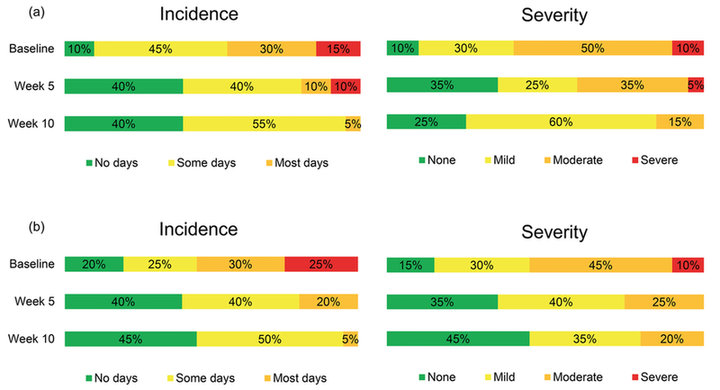
Figure 2. Likert scale scores for incidence and severity of (a) Feelings of stress and (b) Feelings of anxiousness, at baseline, week 5 and week 10 (percentage of participants).
Wellbeing Score (n=20)
Wellbeing scores reportedly improved among 80% of participants during the supplementation period. There was a statistically significant increase in mean wellbeing scores (baseline 6.5±0.9 vs. week 10 7.6±0.5, p=0.005), equating to a 17% improvement.
Discussion
The findings of this real-world study suggest that intake of a probiotic supplement containing B. longum 1714 may be associated with improvements in sleep, feelings of stress, and wellbeing, among healthy people working in hybrid settings.
Problems related to sleep and stress are common in the UK. In contrast to the recommended seven hours (24), the average nightly sleep duration is less than six hours, with negative impacts of sleep on mental health commonly reported (25). Twenty four percent of adults reported feeling anxious during the previous day (26), with 74% feeling overwhelmed or unable to cope (27). The present study showed that problems related to sleep and stress were also prevalent among hybrid workers, affecting most participants within the week prior to study baseline.
Following probiotic supplementation, biometric and self-reported measures of sleep increased, consistent with previous clinical research findings in healthy adults. In a double-blind, randomised, placebo-controlled trial of male university students, eight weeks’ intake of B. longum 1714 significantly increased sleep duration during exam stress (19). Improvement in sleep quality, accompanied by a reduction in daytime dysfunction due to sleepiness, was observed after just four weeks of supplementation with B. longum 1714 (20). In the present study, the significant reductions in the incidence and severity of tiredness/fatigue, which accompanied improvements in sleep, are supportive of the B. longum 1714-induced changes in neural activity correlated to increased energy/vitality which have been demonstrated (20, 21). Moreover, the reductions in the incidence and severity of feelings of stress, anxiousness and being overwhelmed reported by hybrid workers support findings from a placebo-controlled clinical trial of healthy adult males in which B. longum 1714 significantly reduced perceived daily stress and cortisol output in response to stress, and attenuated anxiety levels following exposure to acute stress (18). These effects waned at follow-up, indicating the need for continual intake of probiotics for lasting effects (18), although this was not investigated in the present study. The improvements in sleep and stress-related outcomes accompanied by increased wellbeing in the present study, support previous findings of correlations between poor sleep quality, increased anxiety/depression, and decreased quality of life in remote workers (28).
Preclinical models have shown positive effects of B. longum 1714 on behaviours related to stress, anxiety and depression, that were not observed with another bifidobacterial strain (16, 17), indicating strain-specific mechanisms of action. B. longum 1714 may regulate stress responses (18) and sleep quality (19, 20) in healthy adults without major gut microbiota compositional changes, instead directly affecting host health through mechanisms related to the intrinsic features of its cell wall and secreted metabolites (29). Indeed, dysregulated sleep and everyday stress are associated with increased peripheral inflammation and decreased neuroactive metabolites (30, 31, 32). B. longum 1714 has been shown to reduce peripheral inflammation in preclinical murine models and healthy males undergoing acute stress (33). In females with irritable bowel syndrome and mild/moderate anxiety and/or depression, a combination of B. longum strains 1714 and 35624TM induced a significant decrease in plasma tumour necrosis factor-alpha (TNF-α), which was a significant driver of the concurrent clinical improvements in anxiety/depression scores (34).
The present study was limited by the high drop-out rate, which may reduce the reliability of the findings. As no adverse events were reported, this may be due to a lack of incentives offered to complete the self-reported data collection at each timepoint. The use of other probiotics, prebiotics, or antibiotics, which could impact the effectiveness of the B. longum 1714 strain, was not controlled for. Whilst the surveys used were not validated, the study was strengthened by the inclusion of biometric data to measure sleep duration. However, variability in synchronisation of sleep data from wearable devices led to missing data, prohibiting detailed analysis of sleep stages.
Whilst randomised placebo-controlled trials are the gold standard to demonstrate evidence of probiotic efficacy, their results are not generalisable to effectiveness within real-world settings. In this real-world study, the supplement used was a commercially available formulation containing B vitamins, preventing isolation of the probiotic effects. Whilst the open-label design and lack of a control or comparator group introduced a potential placebo effect, the consistency of the findings with those of placebo-controlled clinical trials of this strain without B vitamins suggests a true probiotic effect. This was further supported by the time course of observed changes, with cumulative improvements in outcomes paralleling the gradually increasing quantities of cultures populating the gastrointestinal tract of participants during B. longum 1714 supplementation known to occur in previous clinical trials (18, 20). Finally, as the study was exploratory in nature, it was not powered to determine statistical significance, therefore these findings should be confirmed in future, adequately powered studies.
Conclusions
Problems related to sleep and stress are common and present a burden to the individual and the healthcare system. This real-world study exploring the experiences of UK hybrid workers provides evidence consistent with that from clinical trials, suggesting that B. longum 1714 may help to promote healthy sleep, lessen feelings of stress, and support overall wellbeing. As this study was conducted in healthy people, its findings are only applicable to this cohort, not necessarily individuals with diagnosed sleep disorders, stress or anxiety. Future research is needed to investigate the effects of B. longum 1714 in other populations and when taken on a long-term basis. Ideally such research would involve larger populations, take measures to reduce drop-out rate and use validated assessment tools to measure self-reported outcomes.
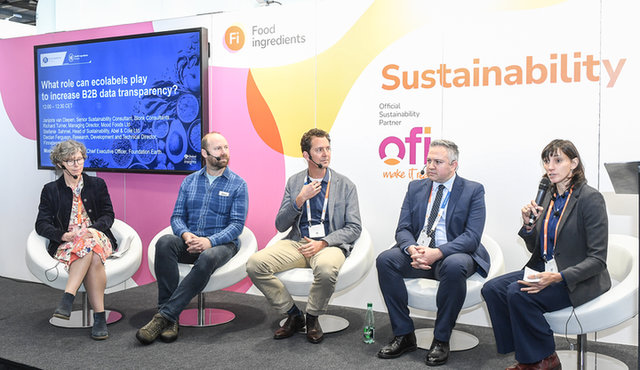
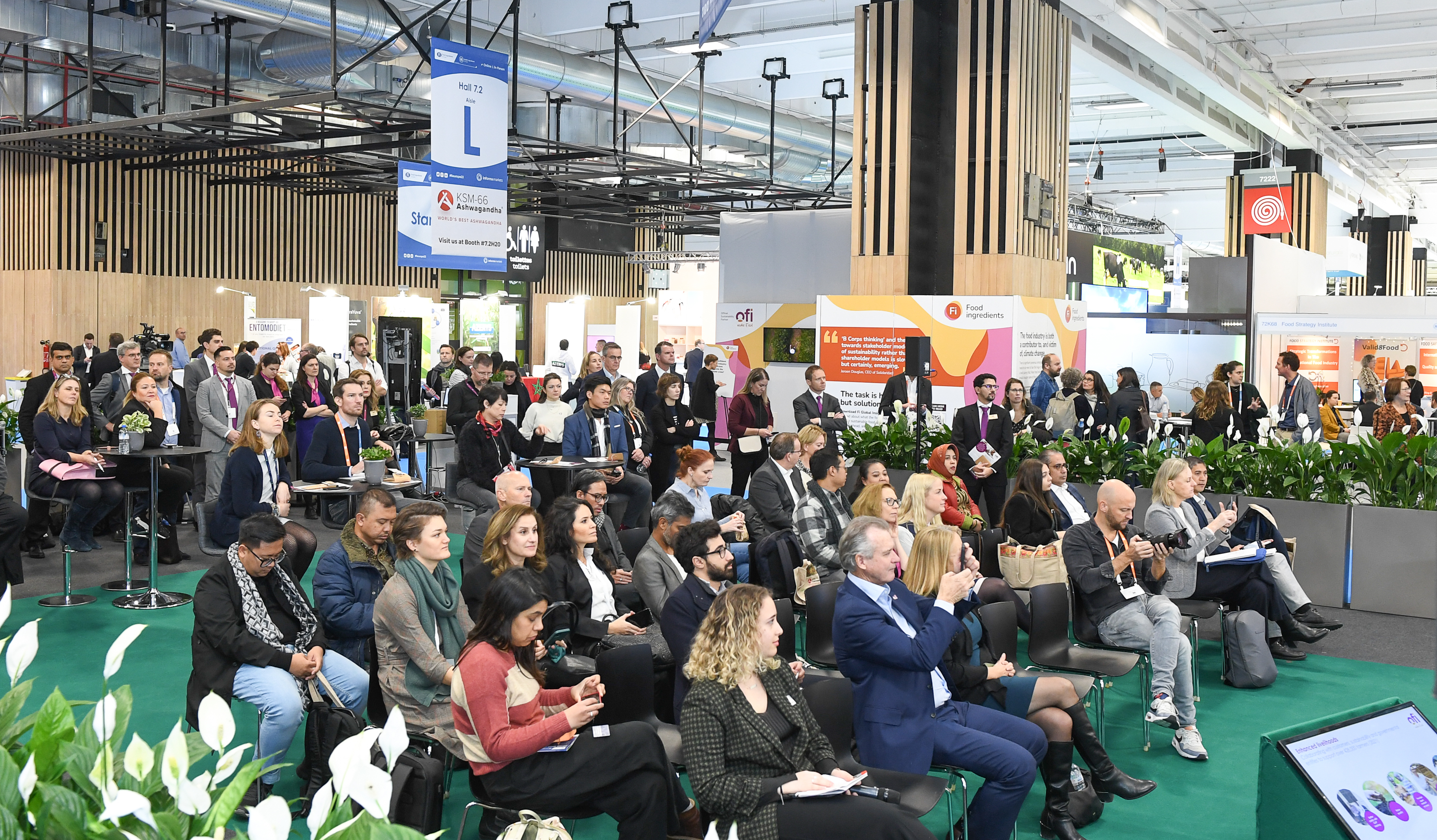

References and notes
- Mutebi N, Hobbs A. The impact of remote and hybrid working on workers and organisations. In: Parliamentary Office of Science and Technology. (eds). 2022.
- de Menezes LM, Kelliher C. Flexible Working and Performance: A Systematic Review of the Evidence for a Business Case. Int J Manag Rev. 2011;13(4):452-74.
- Costa C, et al. Work Performance, Mood and Sleep Alterations in Home Office Workers during the COVID-19 Pandemic. Int J Environ Res Public Health. 2022;19(4):1990.
- Ewers M, Kangmennaang J. New spaces of inequality with the rise of remote work: Autonomy, technostress, and life disruption. Appl Geogr. 2023;152:102888.
- Hafner M, Stepanek M, Taylor J, Troxel WM, Van Stolk C. Why sleep matters - the economic costs of insufficient sleep: A cross-country comparative analysis. Rand Health Q 2017;6(4):11.
- Stevenson D, Farmer P. Thriving at work: the Stevenson/Farmer review of mental health and employers. London: Department for Work and Pensions and Department of Health; 2017.
- Cigna. Chronic stress: are we reaching the health system burnout? 2019.
- Liew SC, Aung T. Sleep deprivation and its association with diseases- a review. Sleep Med. 2021;77:192-204.
- Russell G, Lightman S. The human stress response. Nat Rev Endocrinol. 2019;15(9):525-34.
- Lo Martire V, Caruso D, Palagini L, Zoccoli G, Bastianini S. Stress & sleep: A relationship lasting a lifetime. Neurosci Biobehav Rev. 2020;117:65-77.
- Sen P, et al. Microbiota and sleep: awakening the gut feeling. Trends Mol Med. 2021;27(10):935-45.
- Foster JA, Rinaman L, Cryan JF. Stress & the gut-brain axis: Regulation by the microbiome. Neurobiol Stress. 2017;7:124-36.
- Cryan JF, et al. The Microbiota-Gut-Brain Axis. Physiol Rev. 2019;99(4):1877-2013.
- Smith RP, et al. Gut microbiome diversity is associated with sleep physiology in humans. PLoS One. 2019;14(10):0222394.
- Marotta A, et al. Effects of Probiotics on Cognitive Reactivity, Mood, and Sleep Quality. Front Psychiatry. 2019;10:164.
- Savignac HM, Kiely B, Dinan TG, Cryan JF. Bifidobacteria exert strain-specific effects on stress-related behavior and physiology in BALB/c mice. J Neurogastroenterol Motil. 2014;26(11):1615-27.
- Savignac HM, Tramullas M, Kiely B, Dinan TG, Cryan JF. Bifidobacteria modulate cognitive processes in an anxious mouse strain. Behav Brain Res. 2015;287:59-72.
- Allen AP, et al. Bifidobacterium longum 1714 as a translational psychobiotic: modulation of stress, electrophysiology and neurocognition in healthy volunteers. Transl Psychiatry. 2016;6(11):939.
- Moloney GM, et al. Improvements in sleep indices during exam stress due to consumption of a Bifidobacterium longum. Brain Behav Immun Health. 2021;10:100174.
- Patterson E, et al. Bifidobacterium longum 1714 improves sleep quality and aspects of well-being in healthy adults: a randomized, double-blind, placebo-controlled clinical trial. Sci Rep. 2024;4(3725).
- Wang H, Braun C, Murphy EF, Enck P. Bifidobacterium longum 1714™ Strain Modulates Brain Activity of Healthy Volunteers During Social Stress. Am J Gastroenterol. 2019;114(7):1152-62.
- Medical Research Council, Health Research Authority. Do I need NHS REC review? https://www.hra-decisiontools.org.uk/ethics/index.html. [Accessed 23rd February 2024].
- European Commission. Regulation of the European Parliament and of the Council of 25 October 2011 on the provision of food information to consumers, amending Regulations (EC) No 1924/2006 and (EC) No 1925/2006 of the European Parliament and of the Council, and repealing Commission Directive 87/250/EEC, Council Directive 90/496/EEC, Commission Directive 1999/10/EC, Directive 2000/13/EC of the European Parliament and of the Council, Commission Directives 2002/67/EC and 2008/5/EC and Commission Regulation (EC) No 608/2004, 1169/2011/EU. Official Journal, L 304/18, 22/11/2011.
- Watson NF, et al. Recommended Amount of Sleep for a Healthy Adult: A Joint Consensus Statement of the American Academy of Sleep Medicine and Sleep Research Society. Sleep. 2015;38(6):843-4.
- Nuffield Health. The State of the Nation’s Health and Wellbeing in 2023: Key findings from the Healthier Nation Index. 2023.
- Office for National Statistics. UK Measures of National Well-being Dashboard. https://www.ons.gov.uk/peoplepopulationandcommunity/wellbeing/articles/ukmeasuresofnationalwellbeing/latest [Accessed 8th August 2023].
- Mental Health Foundation. Stress: Are we coping? 2018.
- Afonso P, Fonseca M, Teodoro T. Evaluation of anxiety, depression and sleep quality in full-time teleworkers. J Public Health (Oxf). 2022;44(4):797-804.
- Groeger D, et al. The role of exopolysaccharide and tryptophan metabolism in the immunomodulatory effects of Bifidobacterium longum 1714. 2023. Manuscript in preparation.
- Mullington JM, Simpson NS, Meier-Ewert HK, Haack M. Sleep loss and inflammation. Best Pract Res Clin Endocrinol Metab. 2010;24(5):775-84.
- Felger JC. Imaging the Role of Inflammation in Mood and Anxiety-related Disorders. Curr Neuropharmacol. 2018;16(5):533-58.
- Zheng Z-H, et al. Neuroinflammation induces anxiety- and depressive-like behavior by modulating neuronal plasticity in the basolateral amygdala. Brain Behav Immun. 2021;91:505-18.
- Groeger D, et al. Interactions between symptoms and psychological status in irritable bowel syndrome: An exploratory study of the impact of a probiotic combination. J Neurogastroenterol Motil. 2022:14477.
